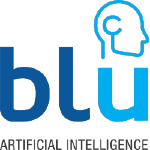
AI Governance in Practice: Implementing Ethical Frameworks in Organizational AI Projects
As artificial intelligence (AI) becomes increasingly integrated into business operations, [...]
As artificial intelligence (AI) becomes increasingly integrated into business operations, the importance of ethical AI governance cannot be overstated. Ensuring that AI systems are developed and deployed responsibly is crucial for maintaining trust, mitigating risks, and aligning AI initiatives with organizational values. In this article, we explore practical strategies for implementing ethical frameworks in organizational AI projects, helping businesses navigate the complex landscape of AI governance.
The Need for Ethical AI Governance
AI governance refers to the policies, procedures, and practices that guide the ethical development and use of AI systems. As AI continues to evolve, organizations face several challenges related to fairness, transparency, accountability, and privacy. Ethical AI governance is essential for addressing these challenges and ensuring that AI technologies are used in ways that benefit society while minimizing potential harms.
Key Principles of Ethical AI Governance
- Fairness: AI systems should be designed and implemented in ways that promote fairness and avoid bias. This includes ensuring that AI algorithms do not discriminate against individuals or groups based on characteristics such as race, gender, or socioeconomic status.
- Transparency: Transparency is critical for building trust in AI systems. Organizations should be clear about how AI decisions are made, what data is used, and what impact those decisions may have. This includes providing explanations for AI-driven outcomes and making AI processes understandable to all stakeholders.
- Accountability: Organizations must take responsibility for the actions and decisions of their AI systems. This involves establishing clear lines of accountability, ensuring that AI systems are regularly monitored and audited, and taking corrective action when issues arise.
- Privacy: Protecting individual privacy is a fundamental aspect of ethical AI governance. Organizations must ensure that AI systems comply with data protection regulations, safeguard personal information, and respect individuals’ rights to privacy.
Strategies for Implementing Ethical AI Frameworks
- Develop a Code of Ethics: Establishing a formal code of ethics for AI use is a crucial first step in ethical AI governance. This code should outline the organization’s commitment to fairness, transparency, accountability, and privacy, and provide guidelines for ethical AI development and deployment.
- Create an AI Governance Committee: Form an AI governance committee responsible for overseeing AI initiatives and ensuring that they align with ethical principles. This committee should include diverse stakeholders from across the organization, including technical experts, legal advisors, and representatives from HR and compliance.
- Conduct Ethical Impact Assessments: Before deploying AI systems, organizations should conduct ethical impact assessments to identify potential risks and unintended consequences. These assessments should evaluate the fairness, transparency, and privacy implications of the AI system, as well as its potential impact on different stakeholders.
- Implement Bias Detection and Mitigation Techniques: To prevent bias in AI systems, organizations should implement bias detection and mitigation techniques throughout the AI lifecycle. This includes using diverse and representative datasets, testing AI algorithms for bias, and continuously monitoring AI systems for discriminatory outcomes.
- Ensure Ongoing Monitoring and Auditing: Ethical AI governance is an ongoing process that requires continuous monitoring and auditing of AI systems. Organizations should establish regular audit procedures to evaluate the performance and impact of AI systems, and make adjustments as needed to address any ethical concerns that arise.
- Engage Stakeholders in AI Governance: Involving stakeholders in AI governance decisions is essential for ensuring that AI systems reflect the values and needs of those they impact. Organizations should engage employees, customers, and other stakeholders in discussions about AI use, and seek their input on ethical considerations and governance practices.
Case Studies of Ethical AI Governance
- Financial Services: A major bank implemented an AI governance framework to ensure that its AI-driven credit scoring system was free from bias. The framework included regular audits, bias testing, and transparency measures, leading to increased trust among customers and regulators.
- Healthcare: A healthcare provider developed an ethical AI framework to guide the use of AI in patient diagnosis and treatment. This framework prioritized patient privacy, data security, and informed consent, resulting in safer and more reliable AI-driven healthcare solutions.
Conclusion
Implementing ethical frameworks for AI governance is essential for organizations looking to harness the power of AI while minimizing risks and building trust. By committing to fairness, transparency, accountability, and privacy, businesses can ensure that their AI initiatives align with their values and serve the greater good. At Blu, we’re dedicated to helping organizations navigate the complexities of AI governance and implement ethical AI practices. Contact us today to learn how we can support your ethical AI journey.
Share this article
Follow us
A quick overview of the topics covered in this article.
Latest articles
April 29, 2025
April 22, 2025
April 9, 2025



